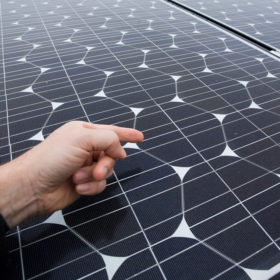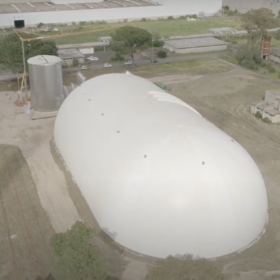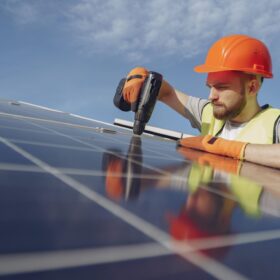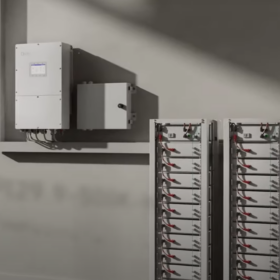Panasonic transfers solar manufacturing unit to GS-Solar and creates new research JV
The Japanese multinational will transfer its Panasonic Energy Malaysia unit to Chinese heterojunction module provider GS-Solar as part of a broader cooperation agreement. Panasonic’s solar R&D business will form part of a JV in Japan to be 90% owned by GS-Solar.
New factory-focused solar tender reportedly in the offing
With last year’s embarrassing manufacturing-linked capacity tender limping along, it has been reported that the Indian government – whichever form it takes after the current elections – is considering a new tender to incentivize the establishment of a domestic solar industry.
Australia considers how to profitably upcycle 80 million tons of PV waste
With concern rising about future solar waste in India, research by the University of New South Wales has examined the economic barriers, technologies and opportunities offered by recycling end-of-life silicon PV modules.
Vikram Solar panels are Black & Veatch certified
After a detailed review of solar panels manufactured at Vikram Solar’s plant in West Bengal, US-based Black & Veatch concluded that its modules successfully meet the requirements of respective international standards.
Tackling India’s solar waste challenge
As the nation aims for 100 GW of solar capacity by 2022 it is staring at up to 1.8 million tons of PV waste by 2050. A solar waste management seminar organized by consultancy Bridge To India in New Delhi brought stakeholders together to discuss how a PV waste management system could help.
Q-Cells unveils new half-cell monocrystalline panel
According to the Korean manufacturer, its Q.Peak Duo-G6 module is produced with larger wafers than those used in the G5. This is said to increase module yield by around 6% for a power output ranging from 355-420 W.
Interview: Damian Miller, CEO of rooftop solar supplier Orb Energy
Founded in 2006, Bengaluru-based Orb is a rooftop solar provider that manufactures panels and provides finance for SMEs through a collateral-free loan that matches the payback period for its solar systems. Orb has sold more than 160,000 units in India, with cumulative installations of around 65 MW of PV rooftop capacity.
The prospects for solar after the Assembly elections
Narendra Modi’s BJP party is seeking re-election with the aim of ensuring the electrification of all railways by 2022 and turning renewable energy into a popular movement with steps including an emphasis on solar farming. Even if the elections spring a surprise, however, the renewable momentum is unlikely to slow as no government can afford to roll back the clean power tide.
India’s solar sector will outperform globally despite near-term challenges, says Fitch Solutions
With Narendra Modi being tipped to triumph again in the current Indian elections, Indian solar capacity is expected to grow robustly, at 15.3% per year, on the back of continued strong government support.
India urgently requires policy on PV waste management: Bridge to India
The nation is trailing behind peers such as the EU when it comes to policy guidelines for materials and recycling and the lack of a viable business case for reusing materials doesn’t help matters.













